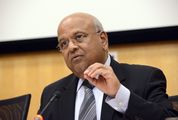THE Board of Healthcare Funders (BHF) came in for close questioning at the Competition Commission’s Healthcare Market Inquiry on Tuesday, with panelists probing its role and teasing out potential conflicts of interest it faced in representing medical schemes and administrators.
Medical schemes are closely regulated nonprofit entities that pool members’ funds to purchase healthcare services, while administrators are for-profit companies.
The BHF represents most medical schemes, medical scheme administrators and managed care organisations. However, it does not count SA’s biggest medical scheme, Discovery Health Medical Scheme, or its administrator, Discovery Health, among its members.
The BHF has been at the centre of the medical scheme industry’s fight with the Council for Medical Schemes over regulation 8 of the Medical Schemes Act, which says medical schemes must pay for claims for prescribed minimum benefits in full, a situation the BHF says opens schemes to unsustainable financial liabilities.
The Competition Commission’s health market inquiry, in its third week of public hearings, is exploring general issues in the private healthcare industry, and the interactions between stakeholders, ahead of more focused hearings on specific aspects of the industry. Under the spotlight on Tuesday were the relationships between medical schemes, their members, trustees, and administrators.
Inquiry panelist Ntuthuko Bhengu said: "I’m battling to understand how the structure of the BHF can be good for the industry, to have players at different levels of the value chain sitting in the same organisation…
"This is slap-bang in the middle of competition issues. Many people say medical schemes and administrators have way too much power: doesn’t BHF provide that unfortunate forum where these powers are consolidated?," he asked.
Panel chairman and retired chief justice Sandile Ngcobo added: "Is there a potential for conflict of interest, and if so, how do you handle it?"
BHF executive director Humphrey Zokufa said the BHF did not deal with conflicts of interests between schemes and administrators, and left it to them to establish service-level agreements. His colleague Rajesh Patel conceded the BHF might be conflicted, but argued it acted in patients’ interests because it helped consumers resolve disputes with medical schemes. "When complaints come to BHF we can selfregulate. We can intervene and people can avoid lawyers."
Medical schemes emerged poorly at the hearings, with consumers and doctors complaining schemes created obstacles to care.
The BHF directed its submission at making the case for price regulation. The status quo accorded too much power to healthcare providers, particularly specialists, who could charge whatever they liked for prescribed minimum benefits as they knew their bills had to be paid in full, it said.

Picture: THINKSTOCK
THE Board of Healthcare Funders (BHF) came in for close questioning at the Competition Commission’s Healthcare Market Inquiry on Tuesday, with panelists probing its role and teasing out potential conflicts of interest it faced in representing medical schemes and administrators.
Medical schemes are closely regulated nonprofit entities that pool members’ funds to purchase healthcare services, while administrators are for-profit companies.
The BHF represents most medical schemes, medical scheme administrators and managed care organisations. However, it does not count SA’s biggest medical scheme, Discovery Health Medical Scheme, or its administrator, Discovery Health, among its members.
The BHF has been at the centre of the medical scheme industry’s fight with the Council for Medical Schemes over regulation 8 of the Medical Schemes Act, which says medical schemes must pay for claims for prescribed minimum benefits in full, a situation the BHF says opens schemes to unsustainable financial liabilities.
The Competition Commission’s health market inquiry, in its third week of public hearings, is exploring general issues in the private healthcare industry, and the interactions between stakeholders, ahead of more focused hearings on specific aspects of the industry. Under the spotlight on Tuesday were the relationships between medical schemes, their members, trustees, and administrators.
Inquiry panelist Ntuthuko Bhengu said: "I’m battling to understand how the structure of the BHF can be good for the industry, to have players at different levels of the value chain sitting in the same organisation…
"This is slap-bang in the middle of competition issues. Many people say medical schemes and administrators have way too much power: doesn’t BHF provide that unfortunate forum where these powers are consolidated?," he asked.
Panel chairman and retired chief justice Sandile Ngcobo added: "Is there a potential for conflict of interest, and if so, how do you handle it?"
BHF executive director Humphrey Zokufa said the BHF did not deal with conflicts of interests between schemes and administrators, and left it to them to establish service-level agreements. His colleague Rajesh Patel conceded the BHF might be conflicted, but argued it acted in patients’ interests because it helped consumers resolve disputes with medical schemes. "When complaints come to BHF we can selfregulate. We can intervene and people can avoid lawyers."
Medical schemes emerged poorly at the hearings, with consumers and doctors complaining schemes created obstacles to care.
The BHF directed its submission at making the case for price regulation. The status quo accorded too much power to healthcare providers, particularly specialists, who could charge whatever they liked for prescribed minimum benefits as they knew their bills had to be paid in full, it said.





















Change: -0.42%
Change: -0.35%
Change: -0.17%
Change: 0.14%
Change: -2.58%
Data supplied by Profile Data
Change: -0.56%
Change: 0.13%
Change: -0.42%
Change: 0.00%
Change: -0.18%
Data supplied by Profile Data
Change: 0.15%
Change: -0.16%
Change: 0.03%
Change: -0.07%
Change: 0.12%
Data supplied by Profile Data
Change: 0.15%
Change: 0.73%
Change: 0.13%
Change: -0.35%
Change: 0.44%
Data supplied by Profile Data